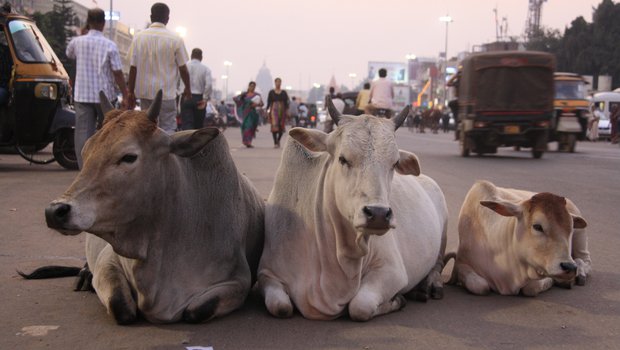The science and technology ministry has offered to fund research projects that seek to pinpoint ingredients in dung, milk and urine of “pure indigenous cows” for use in medicinal, nutritional, agricultural and household products.
The department of science and technology (DST), an arm of the ministry, has invited research proposals from academic institutions and non-government organisations for systematic investigation into prime products of indigenous cows, setting March 14, 2020, as the deadline for applications.
The call for proposals, titled “Scientific Utilisation Through Research Augmentation-Prime Products from Indigenous Cows (Sutra-Pic), has stirred speculation among some senior scientists whether the initiative is a genuine open-ended inquiry into claims on cows or an agenda-driven programme.
“The concern is whether the programme will be an honest inquiry or a directed inquiry,” said Subhash Lakhotia, an emeritus professor who himself specialises in ayurvedic biology, among other fields, at Banaras Hindu University.
The DST has pointed out that although several ancient ayurveda texts and traditional medicine practitioners prescribe products from indigenous cows to treat health disorders ranging from arthritis, asthma and blocked arteries to cancer, diabetes and high blood pressure, “there is not much scientific research” to back these claims.
Cow urine, for instance, is widely recommended, but the DST’s Sutra-Pic document said, scientific information about the “active principles” in the urine is lacking.
“Research proposals under this theme should undertake detailed scientific investigations of chemical profiling, identification of bioactive principles responsible for enhancing activity of antibiotics and anti-cancer drugs and other medicinal properties of the prime products of indigenous cows,” the DST said.
The DST has also called for research efforts to “standardise effective, economic and eco-friendly” household use preparations such as floor cleaners, tooth pastes, hair oil, shampoos and mosquito repellents from the prime products of indigenous cows. “Various products are available in the market, but there is no scientific research on them,” the DST has pointed out.
The funding agency has called for proposals from academic and research institutions as well as “science and technology capable” NGOs active in India with proven record of accomplishment in executing research projects.
“This is not surprising — and the silence from our top science policy managers only means their approval,” said a senior scientist in a central academic institution who requested not to be named.
The DST’s Sutra-Pic proposal is not the first government-supported research initiative on cow science.
In 2017, the DST had constituted a national steering panel of experts to initiate a “National Programme on the Scientific Validation and Research on Panchagavya” — a five-ingredient mixture of cow dung, urine, milk, ghee and curd.
Between 2002 and 2004, scientists with the Council of Scientific and Industrial Research, another unit of the science ministry, had worked with a Nagpur-based NGO, Govigyan Anusandhan Kendra, and obtained two patents on cow urine distillates. One patent claimed that cow urine enhanced the activity of antibiotics, the other claimed anti-allergic and anti-infective properties.
“If this is an open-ended research programme, why is the focus only on cows? Why not other herbivores such as camels or goats — traditional medicine systems also mention products from other herbivores,” said Ayan Banerjee, a faculty member at the Indian Institute of Science Education and Research, Calcutta.










